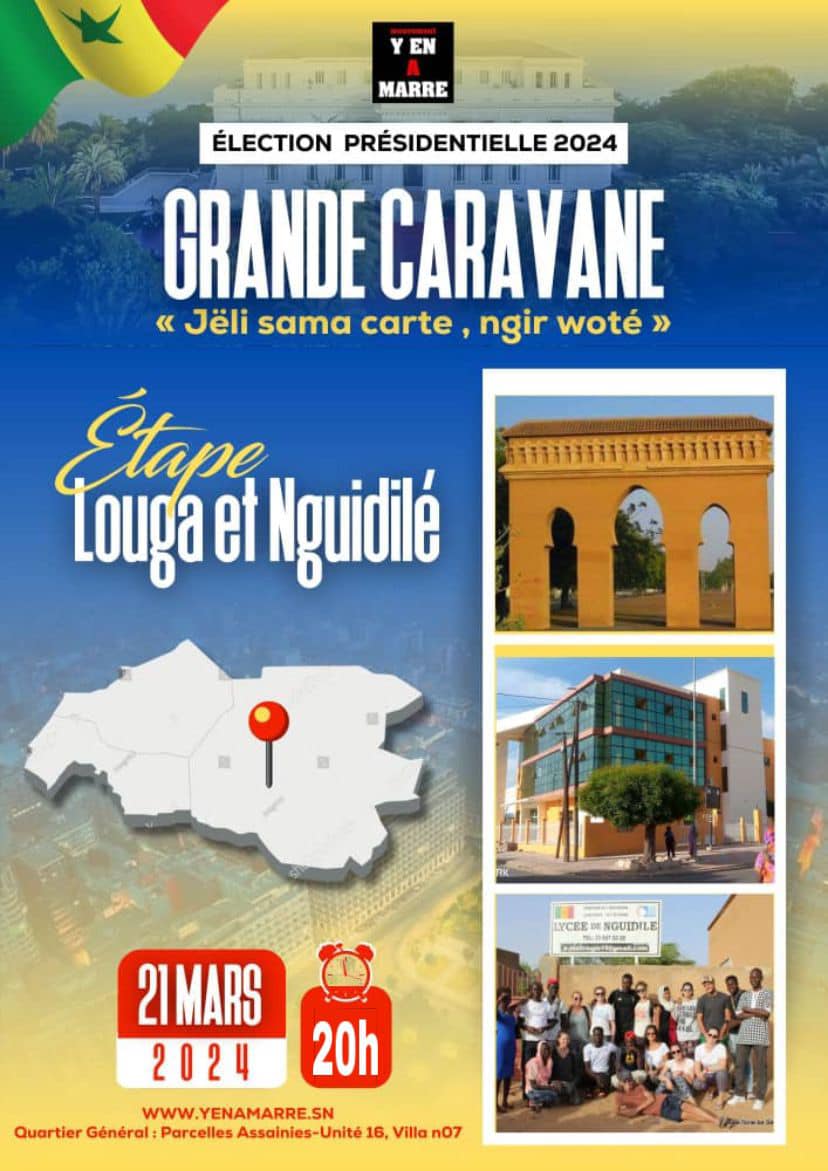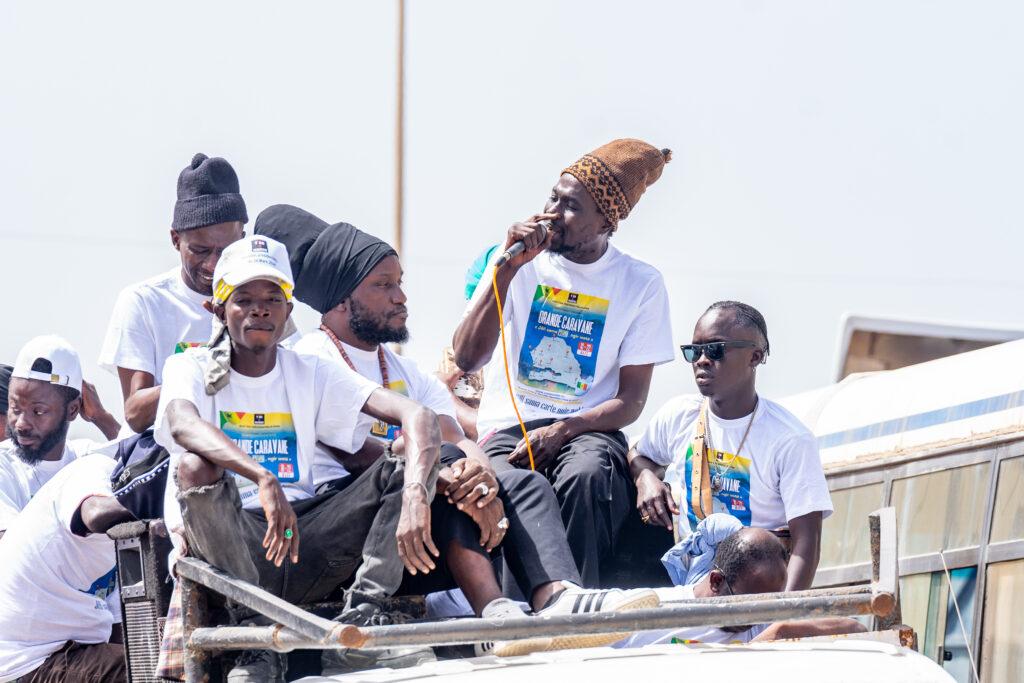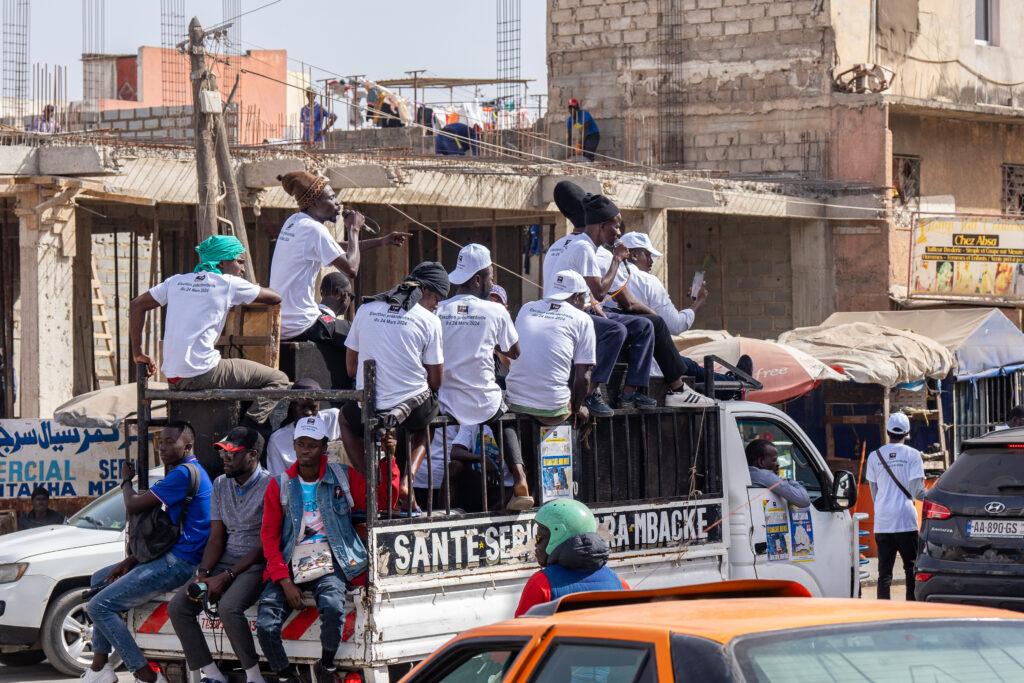Building the Future: A New Model of Nonviolent Resistance to Democratic Backsliding in Senegal

Last month, a silent march organized by AAR SUNU Élection gathered hundreds of Senegalese to demand the date of the presidential election to be set and political prisoners to be released. A few days after this popular demonstration, the two main demands were met. The Senegalese authorities released the political prisoners and set the election date for this Sunday, March 24.
The Y en a Marre (Enough is Enough) nonviolent movement, some key participants in this march, is not new: it was launched in Senegal on January 18, 2011. It is known for its key role in the country's democratic transition in 2012. However, today the country's institutions are weaker than ever, and the executive is constantly violating the country's constitution. Civic space is restricted, with systematic bans on demonstrations, especially those dealing with political and/or social issues. Since 2021, according to Amnesty International, at least 60 people have died on the sidelines of demonstrations in the country. Last February, 266 citizens peacefully demonstrating against the postponement of elections by the Senegalese president were arrested, according to the opposition. They join dozens of other citizens detained for exercising their freedom of expression since 2021.
This democratic backsliding in Senegal reinforces Y en a Marre's position that the people, not governmental leaders, are the foundation for lasting social change. The movement is therefore focusing part of its action on strengthening popular involvement through the TABAX ËLLEG (building the future) program. A transition of power does not always guarantee progress in terms of human rights and justice for a country's population. That's why, at this stage, Y en a Marre is prioritizing long-term actions, two of which are the subject of this article.

A new type of Senegalese citizen for a new Senegal
In 2014, Y en a Marre developed its civic vision for the sustainable and solid construction of an active citizenry. This vision is entitled "Building a new type of Senegalese citizen" (Sur les chantiers du Nouveau Type de Sénégalais). To help make this vision a reality, Y en a Marre has launched five coherent, participatory and forward-thinking projects focusing on local governance, urban cultures, citizenship, the development of an alternative media and training young people in grassroots communication. Known as TABAX ËLLEG, these Y en a Marre projects aim to make Senegalese citizens aware of their civic power and to exercise it nonviolently.
As part of this, one of Y en a Marre's flagship projects is the Citizen Mic, a street rap competition enabling artists to make their voices heard by the Senegalese population. In Senegal, as elsewhere in Africa, rap has the advantage of being a popular music genre among young people and conveying a strong message of social commitment.
The first Citizen Mic in 2017 was a huge success, with almost 500 applications received. The 30 selected candidates had undergone a three-day training on how to write engaging texts on citizenship and governance issues before taking part in a rap competition. Y en a Marre has just launched the second edition of Citizen Mic. The aim of the project is to familiarize the younger generation of rappers with the art of engagement to encourage them to focus on concerns, problems and priorities of the people in their lyrics.
Karibu: Rethinking sanctuary and exile
Carrying great legitimacy among its fellow African and diasporic movements, and with the support of external financial partners, Y en a Marre has initiated an ambitious pan-African project called Karibu (Welcome in Swahili). This project is to build a shelter in Senegal for African human rights defenders who are persecuted, threatened, in danger and/or forced into exile. These vulnerable yet powerful individuals will be able to train, discuss and exchange views on the issues affecting them and find solutions together.
Activists wishing to be accommodated in the Karibu house will be asked to complete an online form. The application will then be examined by an alert and monitoring committee made up of activists present in several countries, particularly those where there is a proven risk to activists. In the event of an imminent threat, the relocation protocol will be flexible and accelerated.
The "Karibu" house, which will open in next month, will reduce the distance between activists in exile and their countries of origin, thanks to Panafrican style hospitality. Above all, living in this house will be an enormous strength and advantage, enabling residents to perfect their activist strategy and take on ownership of their exile.

Photo courtesy of Malick Hamady Diallo.
A bottom-up change is in order
Democratic backsliding in Senegal is a timely reminder that top-down changes do not always guarantee a new turn to democracy and good governance in a country. Hence, it is important that the fight for democracy and good governance in Africa adopt a long-term and bottom-up approach. This means raising people's awareness so that they can defend their deep-rooted aspirations for better governance, regardless of who is in power.
Through its TABAX ËLLEG program, Y en a Marre is directing its efforts towards the emergence of a new type of citizen capable of carrying and defending social transformation him/herself. The Karibu house reflects the same vision, providing protection and security to those who are persecuted for fighting for change in their respective countries. It is through constructive action of this kind that a society of justice, equity, law, peace and progress for all will emerge in Senegal and throughout Africa.
Despite its steadfastness in the struggle, Y en a Marre still faces many challenges. The most urgent, and one that concerns almost all nonviolent movements in Africa, is the urgent need to rethink our movements and to adapt them to quickly evolving socio-political dynamics. Another short-term challenge is the withdrawal of voters' cards and the mass participation of Senegalese citizens in the presidential elections scheduled for this Sunday. To meet this challenge, Y en a Marre is seeing through a vast national awareness-raising program launched earlier this week.

